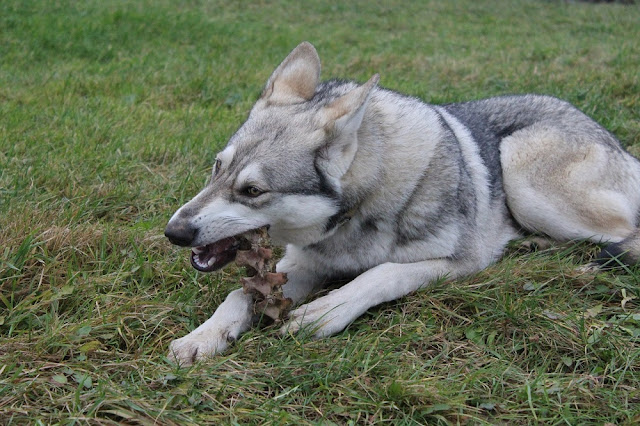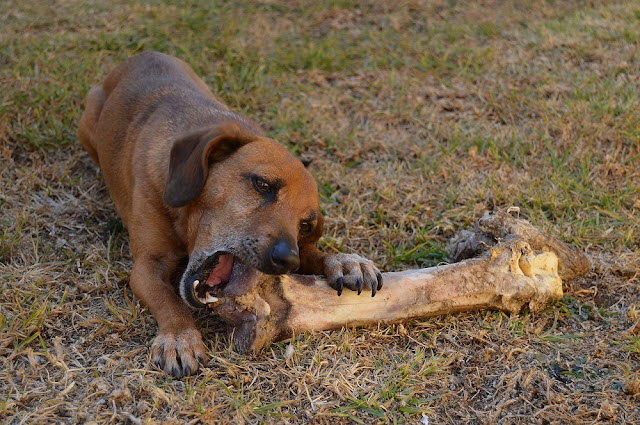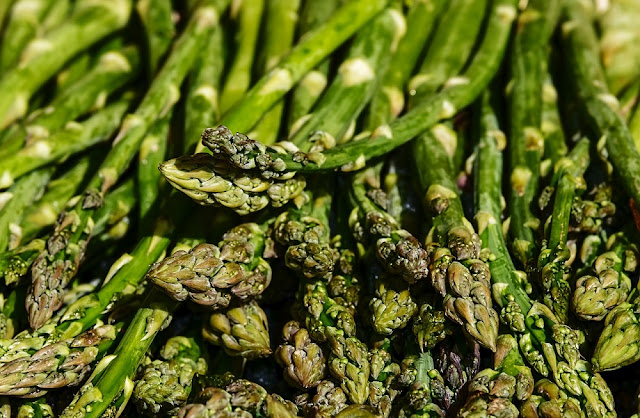 | |
|
Can Dogs Eat Asparagus? Are Asparagus Safe For Dogs?
Dogs are adorable and charming creatures and the best friends of many people. There are different breeds of dogs, each with its own charm and different characteristics.
Dogs have been roommates and friends of humans since prehistoric times. The friendship we forged long ago still exists and the bond between dogs and humans is unwavering. Dogs are present in our daily life, in professions, in all forms of art, in religion and in storytelling. Over time, dogs have been praised and loved for their good relationships with humans.
There was a time when they helped us survive in the wild. This is why we share our food and accommodation with them. This form of alliance quickly became a true and eternal friendship.
People who have a dog consider their four-legged friend a family member. This is not surprising since dogs express a variety of emotions towards people. They will comfort you when you are sad and share happy moments with you and your loved ones. Dogs are sentient beings and should also feel your love.
However, it's not just funny playmates. You should consider the fact that having a dog is not an easy task. A dog is a demanding animal in terms of living conditions, time, money, and patience.
If you want to have a healthy and happy pet, you need to provide the right conditions. It is important to take him to a veterinarian regularly, to take him out daily, to take the time to pamper him and feed him well. It is also important to train your dog well to avoid unpleasant events. Be kind and take care of your new friend and you would be very grateful. Having a dog is a serious long-term commitment and the most precious and beautiful experience for all animal lovers.
Short Answer: Can asparagus hurt dogs?
 | |
|
Can Dogs Eat Asparagus? Are Asparagus Safe For Dogs?
Health Benefits Of Asparagus?
 | |
|
Little research has been done on the health effects of asparagus on dogs, but studies in humans and other animals have shown that this food can help prevent or relieve symptoms of various diseases. In particular, it is said that an antioxidant, a chemical called glutathione, provides most of the superpowers to fight asparagus disease. Glutathione, along with other antioxidants in asparagus, can prevent cell damage that leads to cancer and arthritis.
Asparagus and other antioxidant-rich foods can also be beneficial for dogs who already have chronic inflammatory conditions. Many studies have shown that eating anti-inflammatory foods can relieve the painful symptoms of these diseases. Dogs with arthritis may experience reduced joint pain and improved joint mobility after starting to eat foods rich in antioxidants.
Although antioxidants are incredibly potent micronutrients, asparagus is not the key to preventing or treating existing illnesses in your dog. For health and happiness reasons, your dog should vary the vegetables he eats, and these vegetables should be used as a complementary food instead of basic food. Feeding your dog large amounts of asparagus (or vegetables) instead of the usual dog food can cause digestive and nutritional problems. Although dogs are omnivorous, they don't get as much fruit and vegetables as we do: they need more protein and much less fiber.
Prepare food for your dog
 | |
|
Dog owners and well-trained pet owners generally know the basic nutritional needs of a dog. It is true that dogs are omnivores, but they cannot eat everything. Well, your pet may like some of your processed foods, snacks, sweets, or other processed products, but in reality, they are harmful to dogs. You should know that dogs were carnivores, but their bodies are used to processing other types of food than meat. This fact can easily explain why dogs cannot digest the different foods we eat. Their digestive system has developed to the point where dogs can digest food from plants and animals, but that's it.
A good diet for a dog includes all of the nutrient groups, that is, proteins, carbohydrates, vitamins, minerals, and other important compounds. The secret to the perfect diet for your pet is the proper proportion for each group. To determine the best combination for your pet, consult a veterinarian. This will help you create the best possible diet that meets your dog's nutritional needs.
Choosing the right products to feed your dog may depend on your pet's individual characteristics. There are different manufacturers of high-quality dog food and different options for different types of dogs. Commercial food is designed as a staple food because it contains all the nutrients your dog needs in good quantity every day. Some homemade meals are also welcome. You can mix them easily once you know exactly what types of food you can prepare for your adorable pet.
Dogs and vegetables
 | |
|
So, if you want to enrich your dog's diet with vegetables, use only a food processor or a juicer. The best way to include vegetables in your dog's diet is to mix them with commercially available meat meal or moist food. Although dogs are not as demanding as cats, unique vegetables may not interest them. However, you should eat something. In fact, plant food should eat about 25% of your pet's food. It is not necessary to administer it in equal amounts every day. Sometimes you can mix it with your dog's typical food.
You probably want to know which vegetables to choose from. There is evidence that dogs do not combine well with plants of the nightshade family, such as cats and other pets. This includes vegetables such as tomatoes, eggplant, peppers, and potatoes. The leaves of these vegetables are definitely toxic. So it's better to avoid them. They contain solanine, which can be harmful and toxic to dogs.
As with other vegetables, it is generally recommended to avoid cruciferous vegetables such as cabbage, broccoli, and cauliflower. Some research suggests that these vegetables can seriously affect the thyroid functions of dogs and cause bloating and stomach problems. Therefore, it is advisable to avoid them or at least feed them in small portions.
Green leaves are excellent for dogs. The list includes celery, zucchini, green beans, peas, lettuce, dandelion, parsley, kale, basil, and others. They are good because they are full of antioxidant materials. They are an excellent source of vitamins and minerals. All of its properties are beneficial for your pet's digestion and immune system. In addition, green leafy vegetables are more similar to the plants that wild dogs eat in the wild.
Should I feed my dog with asparagus?
 | |
|
However, asparagus is not easy to digest. We prepared them in different ways and made them really delicious! People eat different foods, including this superfood. We eat them baked, boiled, grilled, roasted. Asparagus has a deep flavor and is a good and very good additive for pasta flour or a pasta ingredient. These meals are suitable for people, but they are not good for dogs. Do not confuse your healthy asparagus dishes, as they usually contain compounds harmful to dogs, such as spices and other ingredients.
Asparagus is generally safe for dogs, which means they are neither toxic nor the like. It contains the whole range of powerful and useful nutrients that are beneficial for our furry friend. For example, it is very good for overweight dogs because it contains a lot of fiber. Asparagus promotes digestion and keeps the intestines healthy. It also works in dogs with arthritic or similar diseases, just like humans. However, dogs are not well equipped to properly digest asparagus. It is a heavier vegetable for them.
Although there is no specific judgment on asparagus in the dog's diet, you can research the experiences of other owners or try to feed your dog with a small portion of asparagus to determine if it is appropriate to your pet. It is good and nutritious to give it raw, but cooked is easier for your dog to digest. It is important to use only simple asparagus, without spices or other additives that can harm your pet.
Occasional small portions of asparagus are probably good for your pet. If you are unsure, there are many other vegetables that are safe and beneficial for dogs.
Things to Consider: Why can't dogs eat asparagus?
 |
| Can Dogs Eat Asparagus? Are Asparagus Safe For Dogs? |
When cooking your asparagus, keep in mind that dogs need relatively simple food. Do not give asparagus cooked with lots of oil or butter. Minimize salt and spices. If the asparagus is made with garlic or onion, especially garlic or onion powder, do not give it. Garlic and onion are extremely toxic to pets.
Read More: Can Dogs Eat Turkey?
Final Thoughts
Then the next time you put asparagus on the dining room table, you can keep one or two stems for your precious puppy. These vegetables are not toxic, are low in calories and fat, and are packed with micronutrients that can give your pet a healthy boost. Keep in mind that your dog is not designed to eat tons of fiber. If you give them too much asparagus, they can develop diarrhea, constipation, vomiting or smelly gas!
Related Post:
Can Dogs Eat Fries
Can Dogs Eat Ketchup
Can Dogs Eat Chocolate
Can Dogs Eat Caramel?

Comments
Post a Comment